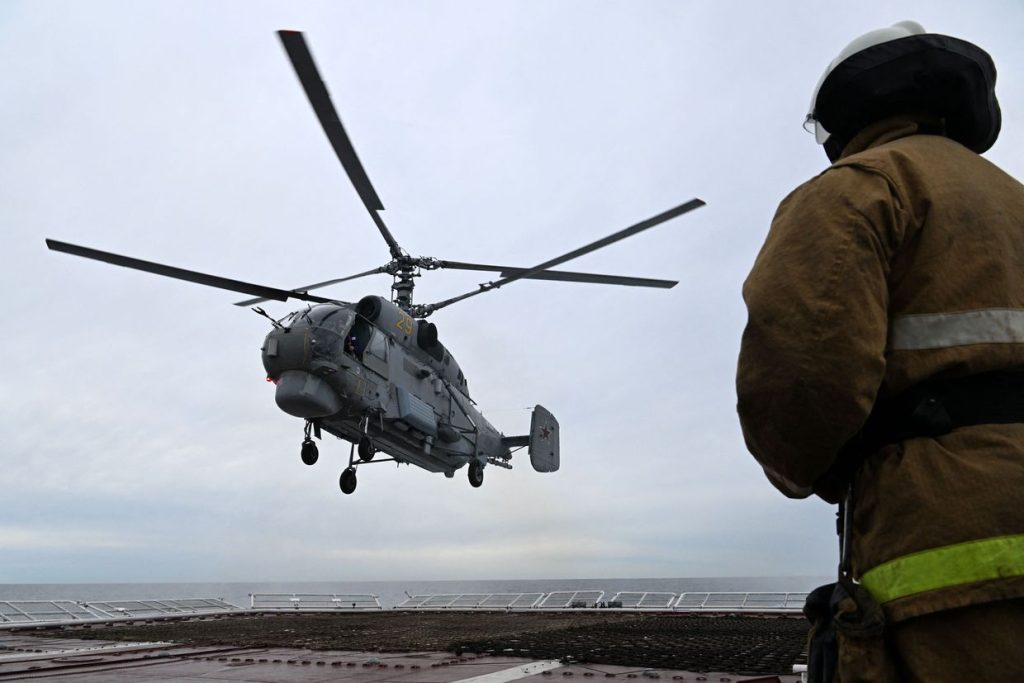The latest developments in the Ukraine war on April 9th include reports of Ukraine hitting an aviation training center in Russia’s Voronezh Oblast. Additionally, Russian attacks in three Ukrainian regions resulted in the death of two individuals and injuries to ten others. Germany has announced plans to deliver 20 additional armored vehicles to Ukraine to support their defense efforts. The International Atomic Energy Agency (IAEA) reported a drone attack on the Zaporizhzhia Nuclear Power Plant.
The ongoing conflict between Ukraine and Russia has escalated with Ukraine’s strike on the aviation training center in Voronezh Oblast, marking a significant development in the conflict. The Russian attacks on Ukrainian territory have led to casualties and injuries, further intensifying the violence in the region. Germany’s decision to send additional armored vehicles to Ukraine reflects the international community’s support for Ukraine in its fight against Russian aggression. The drone attack on the Zaporizhzhia Nuclear Power Plant raises concerns about the potential risks to the safety of nuclear facilities in the midst of the conflict.
The situation in Ukraine remains volatile, with both sides engaged in military actions that have resulted in casualties and destruction. The conflict shows no signs of abating, as both Ukraine and Russia continue to escalate their tactics in the battle for control. The involvement of other countries, such as Germany, in providing military support to Ukraine highlights the international implications of the conflict and the global concern over the ongoing crisis. The attack on the Zaporizhzhia Nuclear Power Plant raises alarms about the potential catastrophic consequences of targeting critical infrastructure.
The escalation of violence in Ukraine underscores the urgent need for a diplomatic resolution to the conflict to prevent further loss of life and destabilization of the region. The international community must work together to find a peaceful solution to the crisis and address the underlying issues driving the conflict between Ukraine and Russia. The targeting of civilian infrastructure, such as the aviation training center and nuclear power plant, highlights the need for measures to protect essential facilities and prevent the escalation of hostilities.
Efforts to de-escalate the conflict and engage in meaningful dialogue are essential to avoiding a full-scale war in Ukraine. The involvement of external actors, such as Germany, in providing military assistance to Ukraine should be conducted within the framework of international law and diplomatic channels. The IAEA’s report on the drone attack on the Zaporizhzhia Nuclear Power Plant underscores the risks posed by the conflict to critical infrastructure and the importance of safeguarding such facilities. It is critical for all parties involved to prioritize the protection of civilians and infrastructure to minimize the impact of the conflict on innocent lives.
As tensions continue to rise in Ukraine, the international community must redouble its efforts to facilitate negotiations and peace talks between the conflicting parties. The latest developments in the conflict underscore the urgent need for a diplomatic solution to prevent further escalation and bring an end to the violence. The targeting of civilian and critical infrastructure in Ukraine highlights the devastating impact of the conflict on the country and the importance of safeguarding these assets from attacks. The involvement of external actors in providing support to Ukraine should be guided by a commitment to peace and stability in the region.


